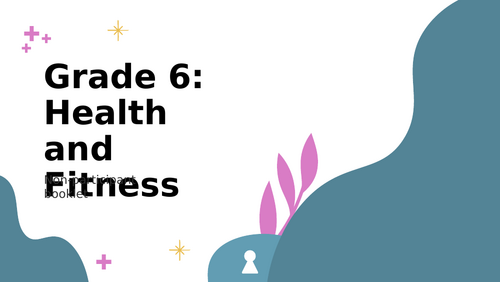

A booklet containing research tasks on health and fitness tailored for Grade 6 students can significantly contribute to their educational development in several ways:
-
Building Fundamental Knowledge: At this age, students are just beginning to understand the importance of health and fitness. A booklet can introduce them to basic concepts such as the benefits of regular physical activity, the role of a balanced diet, and the importance of mental well-being. It can cover topics like different food groups, simple exercises suitable for their age, and the basics of body systems (like the cardiovascular and respiratory systems).
-
Enhancing Approaches to Learning (ATL) Skills: Research tasks designed for younger students like those in Grade 6 help develop essential ATL skills, including:
- Research Skills: Learning to identify credible sources, collect information, and summarize findings.
- Communication Skills: Developing the ability to express their understanding through written and oral presentations.
- Self-Management Skills: Gaining skills in organizing their work and managing time, which are crucial when handling assignments and projects.
- Social Skills: Working collaboratively with peers on group projects, enhancing teamwork and interpersonal communication.
-
Promoting Personal Engagement: By allowing students to choose topics or activities that interest them within the scope of health and fitness, the booklet caters to individual interests, which can boost motivation and engagement. This choice empowers students, giving them a sense of ownership over their learning.
-
Goal Setting: The booklet can guide students in setting simple, achievable fitness or health goals. Learning to set and strive towards goals at a young age fosters discipline and perseverance. It also helps students understand the process of achieving personal improvement and the satisfaction that comes from it.
-
Practical Application and Experimentation: Including tasks that encourage students to try out different physical activities or track their eating habits can make the learning experience more dynamic and interactive. Practical tasks help students connect theoretical knowledge to real-life situations, enhancing their understanding and retention of the material.
-
Reflective Thinking: Encouraging reflection on what they’ve learned and how they can apply it to their daily lives helps students internalize the importance of health and fitness. Reflection tasks can also help them identify areas for personal growth and how to approach these improvements.
Something went wrong, please try again later.
This resource hasn't been reviewed yet
To ensure quality for our reviews, only customers who have purchased this resource can review it
Report this resourceto let us know if it violates our terms and conditions.
Our customer service team will review your report and will be in touch.